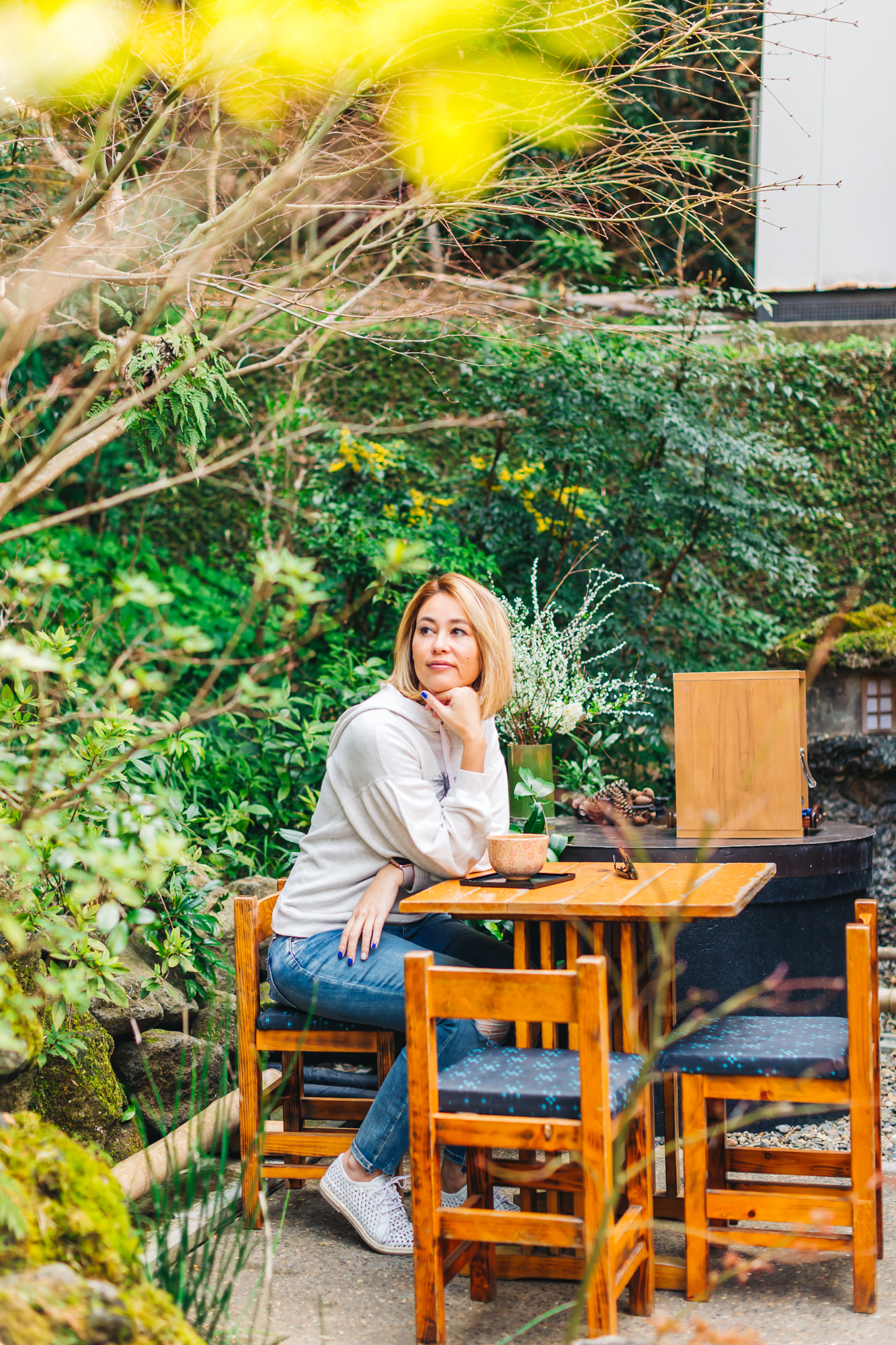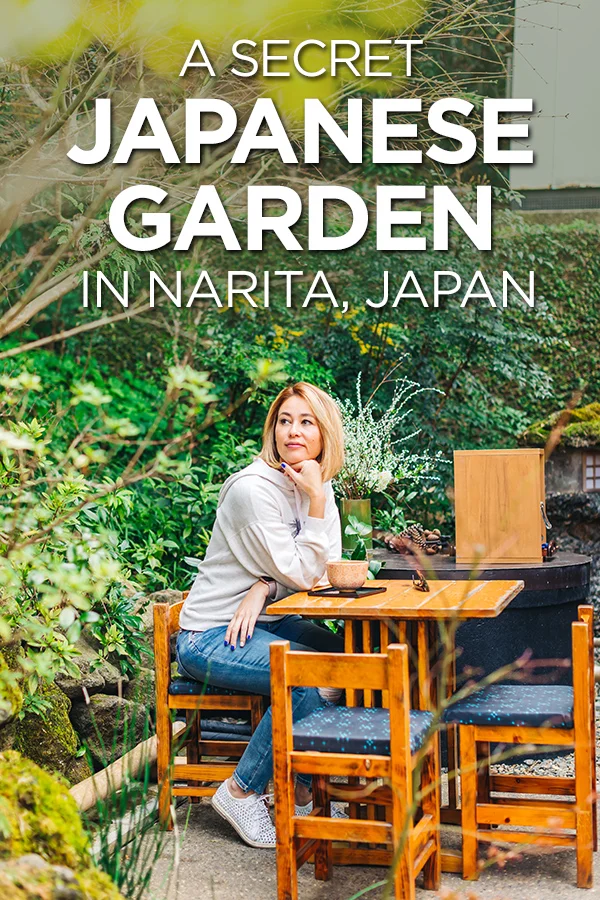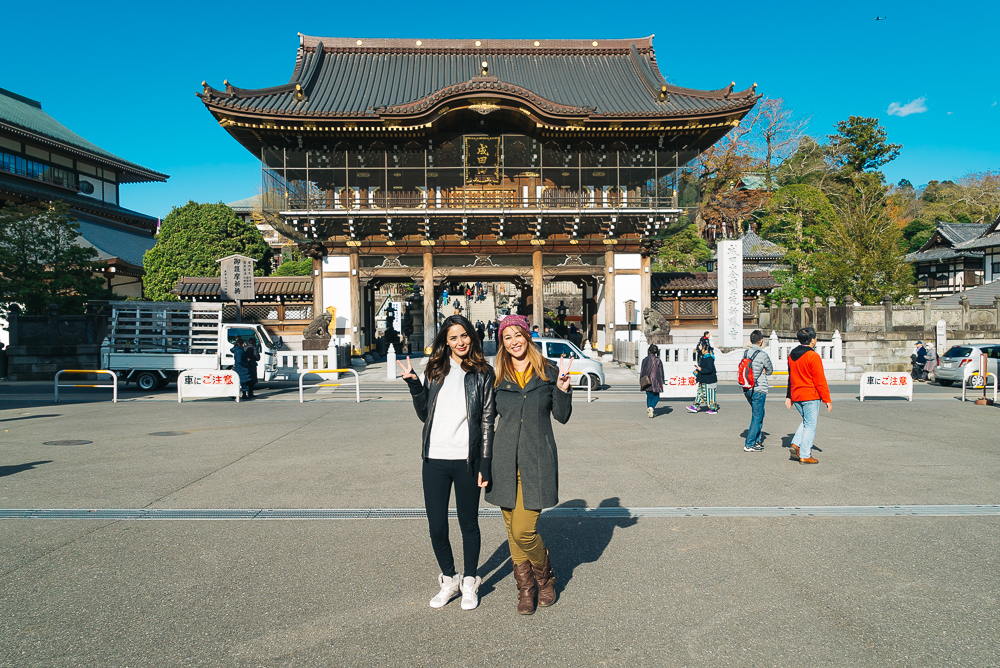Enjoy Green Tea and Desserts At This Beautiful Hidden Japanese Garden in Japan
/This post contains affiliate links, which means that at no additional cost to you if you click on one of the product links, we may earn a commission.
I’ve always loved green tea and, growing up in Japan, it was pretty much something I drank daily. There is actually a proper way to drinking green tea and I learned this when one of my classmates in high school invited me to a tea ceremony. She was in the Tea Ceremony Club, which I didn’t even know our school had such a club (I was in the photography club). I vaguely remember the process but since this was ages ago, I have forgotten how to properly drink green tea. Luckily, my niece recently learned how to drink green tea and showed us the way when we went to Miyoshiya in Narita.
Miyoshiya is quite the hidden gem and it can easily be missed as it’s nestled in a small alleyway along Omotesando (表参道), a road that approaches a temple. The alleyway opens up to an intricate Japanese garden which instantly takes you back in time as it’s a stark contrast to the bustling streets.
THE SMALL ALLEYWAY ENTRANCE TO MIYOSHIYA
Japanese Garden
We were so pleased with the calm and inviting Japanese garden. There was seating both indoors and outdoors and we chose to sit indoors as it was a bit chilly. We were happy that the indoor area did not take away from the beautiful outdoors since it was structured with glass.
ENJOYING TH GARDEN BEFORE WE SAT DOWN AT OUR TABLE
Green Tea
If you’ve never had real green tea, it’s actually quite bitter. To Westerners, it can be an acquired taste if you are not used to it. The proper way to drink green tea is not something everyone knows how to do. It’s like asking someone how to properly drink tea with a royal family. Our niece, Lyla, told us that you have to turn the tea cup three times and then take a sip with both hands holding the cup. After your sip, you wipe the cup where you took your sip. We didn’t have the patience to do this with every sip, so we just did it once.
OUR NIECE, LYLA, teaching US THE PROPER WAY TO DRINK GREEN TEA
SEATING OUTDOORS
Japanese Sweets
Japanese sweets pair well with green tea and traditional Japanese sweets are very different from Western ones. A popular Japanese confection is anko, which is a sweet bean paste that is made from boiled adzuki beans and sugar. We ordered a variety of little treats and they were all so beautifully presented and paired so well with our green tea.
LOVE THE DRAWINGS ON THEIR MENU. DON’T WORRY, THEY HAVE AN ENGLISH MENU TOO.
Konnyaku Warabi Mochi
Describing this traditional dessert can be tricky. It’s a bracken-starch dumpling that has a jelly-like texture. It is covered in a sweet toasted soybean flour with a side of black honey to drizzle on top. My favorite part about this dessert is the powdery toasted soybean. This dish is especially popular in the Kansai region of Japan where I lived for a little bit, so I used to buy it all the time on my way home from work when I lived in Osaka.
DRIZZILING BLACK HONEY ON TOP OF THE WARABI MOCHI.
Isobe Yaki Mochi
Mochi is a rice cake that is made from pounded rice and it is very sticky, so it’s definitely not something for the gluten-free folks. The grilled mochi we ordered was homemade and came with a side of peanuts. When we were kids, our mother used to grill mochi often on the stove during the winter months. You can also boil mochi, but we prefer it grilled. Once it’s been grilled, you then dip it in soy sauce and wrap it in dry seaweed.
TRADITIONAL GREEN TEA + ISOBE YAKI MOCHI
Sakura Mochi
This was a cherry blossom mochi that was filled with sweet red bean paste. The salted sakura leaf wrapped around the mochi was a delicious sweet and salty treat. Sakura mochi is traditionally eaten during the spring season and during Hinamatsuri, which is Girl’s Day.
THERE WAS NO SILVERWARE TO EAT OUR SWEETS. EITHER WE TAKE ONE BITE, OR WE USE THE CUTE TOOTHPICK THEY PROVIDED.
Final Thoughts
We absolutely loved our afternoon tea and desserts at Miyoshiya. If you want to experience traditional tea and sweets in a traditional Japanese garden, we highly recommend stopping by here. They have an English menu, so the ordering process won’t be intimidating. If you’re visiting during the cherry blossom season, there is a beautiful tree in the middle of the garden that will be absolutely beautiful to look at.
SUCH A GORGEOUS JAPANESE GARDEN. WISH THE SAKURA TREE ABOVE US WAS BLOOMING!
Miyoshiya 三芳家
@miyoshiya_nrt
ADDRESS: 386-2 Nakamachi, Narita, Chiba Prefecture, 286-0027
HOURS: OPEN EVERYDAY (except for Wednesday) FROM 10AM - 5PM














































